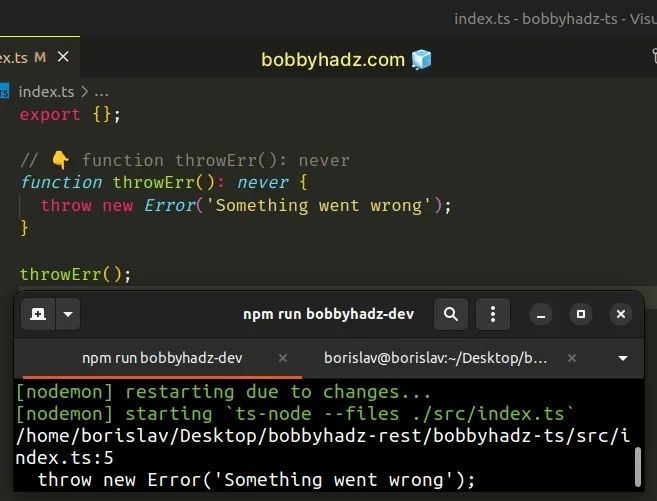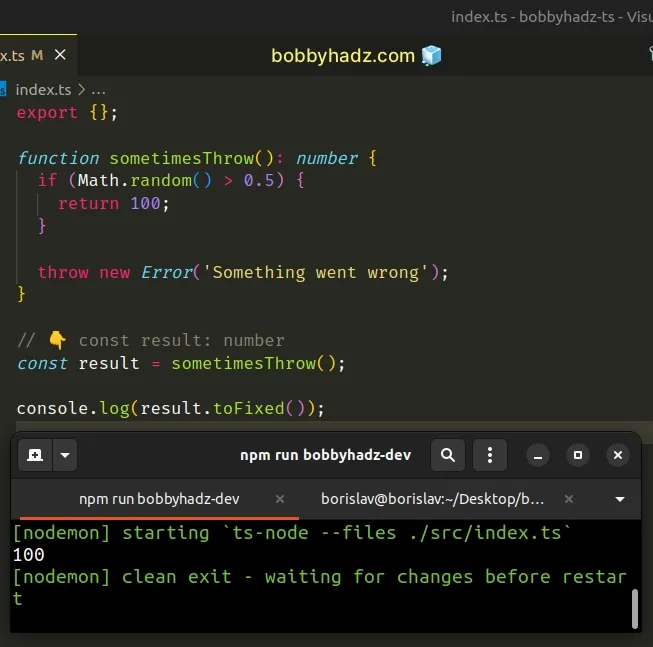How to Declare a Function that throws an Error in TypeScript
Last updated: Feb 27, 2024
Reading time·3 min

# Declare a function that throws an Error in TypeScript
To declare a function that throws an error, set its return type to never.
The never type is used for functions that never return a value, in other
words, functions that throw an exception or terminate the execution of the
program.
// 👇️ function throwErr(): never function throwErr(): never { throw new Error('Something went wrong'); }

The never type is used very rarely in TypeScript.
It is used when the function is never going to reach a return statement, which
happens mostly for 2 reasons:
- The function throws an error.
- The function loops infinitely.
# never vs void
If we didn't explicitly type the function's return value, TypeScript would have
inferred it as void.
// 👇️ function throwErr(): void function throwErr() { throw new Error('Something went wrong'); }
The difference between never and
void is that void is
used for functions that don't return anything (or return undefined).
If we accidentally return a value from a function that has a
return type of void, we
would get an error.
never are never going to return anything.# Functions that throw an error only some of the time
You very rarely have to
set a function's return type to
never.
For example, if the function throws an error only some of the time, you
shouldn't set its return type to never.
function sometimesThrow(): number { if (Math.random() > 0.5) { return 100; } throw new Error('Something went wrong'); } // 👇️ const result: number const result = sometimesThrow(); console.log(result.toFixed());

The function in the example returns a number some of the time and throws an
error on some invocations.
You could use a union type to set
its value to number or never.
function sometimesThrow(): number | never { if (Math.random() > 0.5) { return 100; } throw new Error('Something went wrong'); } // 👇️ const result: number const result = sometimesThrow(); console.log(result.toFixed());
But this is only useful to inform your colleagues that the function might throw an error.
result variable is still typed as a number even though we set the function's return type to number | never.This is because every other type absorbs never in a union type.
// 👇️ type T = number type T = number | never;
Notice that number | never is simplified to number. This is the case when
using never with any other type in a union.
number | never because that would indicate to your colleagues that the function might throw an unhandled error and they might have to wrap the invocation in a try/catch statement.However, this doesn't technically influence the function's return type.
# You can't specify the type of error a function throws
It should also be noted that there isn't a way for you to distinguish the type of error a function throws.
For example, if you have a class CustomError that extends from Error,
there's no way for you to tell TypeScript that your function throws a
CustomError instead of an Error.
If you set the function's return type to CustomError, this means that the
function will return (and not throw) a value typed as CustomError.
# Additional Resources
You can learn more about the related topics by checking out the following tutorials:

